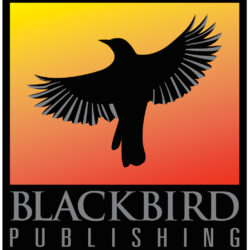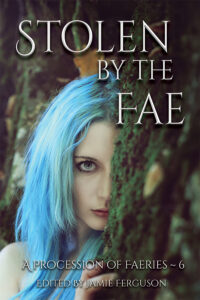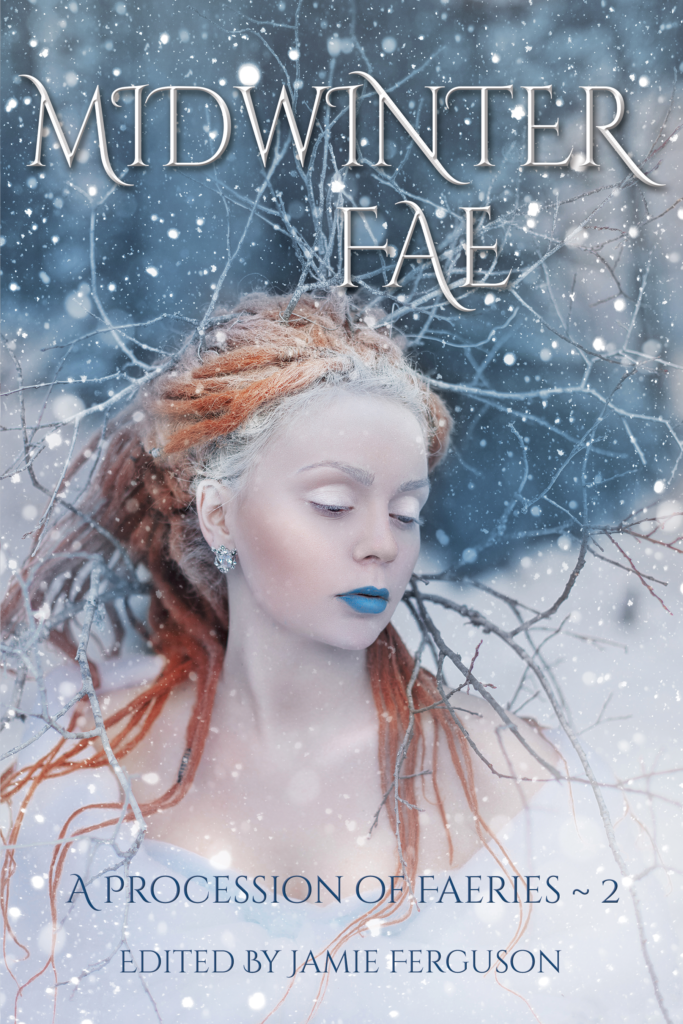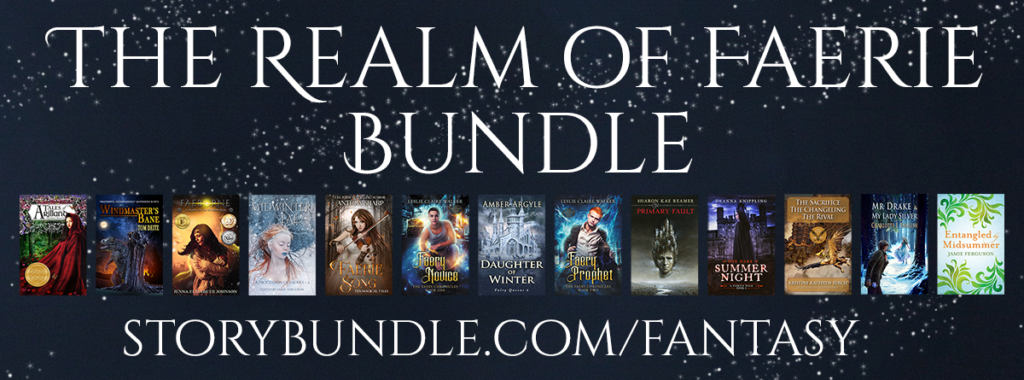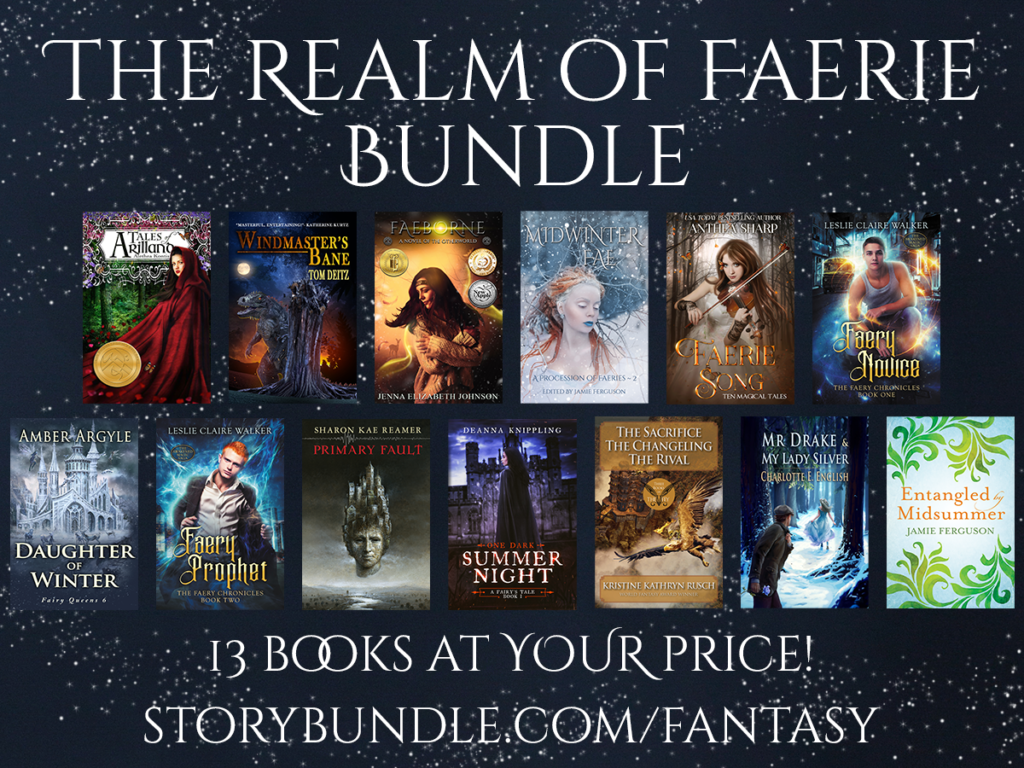“The Replacement,” by Ron Collins, appears in Stolen by the Fae, the 6th volume in the anthology series A Procession of Faeries.
The Interview
Why do you think the mythology of the changeling, in which the Fae steal a human and replace it with one of their own kind, is so intriguing to people?
There’s a lot tied into that question, not the least is that the answer has probably changed of the centuries. Today, I think people can get trapped in the routine of their daily grind, and that sense of claustrophobia can make us yearning for something extraordinary to exist. The idea of the changeling says something bigger exists. It carries a sense of adventure and hidden realms that I kind of like. To be selected in that world means something, too.
I don’t know, really. Humans are weird, right?
The idea of being essentially kidnapped, but then taken to a place of wonder, magic, and beauty that exists kind of under the skin of our lived existence has this amazing dichotomy to it. There is something dangerous to fae magic. But we are drawn to danger, too.
Is there a recurring theme that appears in your writing? If so, what is it, and why do you think it keeps appearing?
Looking at my work, I think it often revolves around the idea of ordinary, working level people who live in complex worlds that they don’t have any real power to change, but who still strive to do what they can. Not every story, of course. But a scan of my titles says that this idea comes embedded in a lot of them. “The Replacements” has that feel to it, too. Bron, the protagonist, understands a lot of his life—but not all of it. He’s not in control of a lot of it. But he’s found purpose in his own way. And then, of course, things happen.
Is there a fairy tale that you really enjoy, or which has stuck with you? If so, which one—and what do you find compelling about this particular story?
I didn’t grow up with fairy tales deeply ingrained in my life, so I can’t say that I latched onto a single tale at any particular time. I really came to them more fully when my daughter was born and I would read them with her, or see her absorbing them. At that point, my writer-brain kicked in and I started trying to understand them better. So, I think for me the idea of full existence and purpose of fairy tales as a whole is more important than any specific one.
I like thinking about what fairy tales mean inside cultures, and how that meaning has changed over time. I “like” seeing the Disneyfication of stories—if “like” is the right word. I like overlaying modern retellings with the darker undertones of fairy tales centuries past. I find modern day retellings interesting because of what those retellings are able to say about our world today. Our culture’s reactions to them—everything from story choices to casting decisions (of movies) says something about us.
And mashups, too.
Disney’s Enchanted is a mind-bending mix of sampling in a self-referential parody of everything that is commercial telling of fairy tales over the past hundred years or so. I don’t know if that’s good, bad, or indifferent, but I liked it—both because in the moment it was fun, and because when you look at it more deeply you can walk away thinking about a lot of the influences of fairy tales on how we live today. Again, for better or for worse.
So, yeah. Right. What was the question? (grin)
What aspect do you like most about your story in Stolen by the Fae, and why?
“The Replacement” was one of those stories that came to me as it came. Meaning I wrote the first sentence, then the second, and just let the stream play out. I knew a few things about Bron, but I didn’t know exactly what was going to happen or why he was where he was.
Sometimes I do that and the story never resolves for me, which is really frustrating. But in his case, things came together, and when it did it came to me with a tide of emotions about life and love, and what it means to be part of a community, and a few other undertones that made me happy.
I love it when that happens.
What are you working on now, and what’s fun about what you’re writing?
Oh, my. I’m working on too many things right now! I’m collaborating with my brother on a fun series of mooks that will mash his music in with my prose. That’s a lot of fun, though the work is slow due to our geographic separation and the need to come together sometimes.
Probably more appropriate for this audience is the Fairies and Fastballs series I’m working on with my daughter, Brigid. The first book, Home Run Enchanted, is already out, and the second, Curve Ball Cursed, is nearing completion. They are stories that I know I would never have come up with on my own, and it’s a lot of fun to write with Brigid. It’s a lot of work, too, of course. We’re very different writers, so seeing things so directly from her view is a real learning experience.
Folks can find links to Home Run Enchanted on my website.
We’re hoping to have Curve Ball Cursed out by MLB’s mid-July All-Star break, but we’ll see what happens!
About Ron
Ron Collins is a best-selling Science Fiction and Dark Fantasy author who writes across the spectrum of speculative fiction. With his daughter, Brigid, he edited the anthology Face the Strange.
His short fiction has received a Writers of the Future prize. His short story “The White Game” was nominated for the Short Mystery Fiction Society’s 2016 Derringer Award.
He holds a degree in Mechanical Engineering and has worked to develop avionics systems, electronics, and information technology before chucking it all to write full-time.
Find Ron
Website ~ Facebook ~ Twitter ~ BookBub ~ Amazon ~ Goodreads
Find Stolen by the Fae
Universal Book Link ~ Amazon ~ Apple Books ~ Barnes & Noble ~ Kobo ~ BookBub ~ Goodreads
A Procession of Faeries
Learn more about the series, and follow A Procession of Faeries on Facebook and Goodreads!
